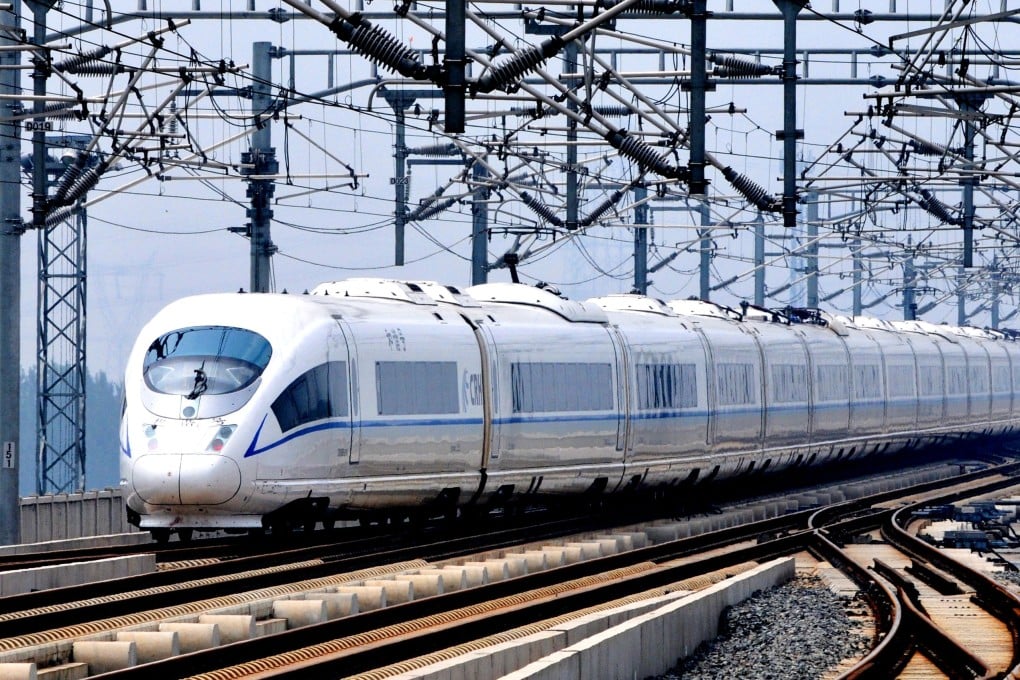Beijing-Shanghai high-speed railway operator makes bullish debut as China seeks more funds to expand network
- Shares closed 39 per cent higher after hitting the 44 per cent maximum allowed under Shanghai exchange rules before easing off at morning trading break
- Company raised 30.7 billion yuan (US$4.5 billion), among the biggest onshore IPOs in the past four years

Beijing-Shanghai High Speed Railway, the operator of the rail link between China’s two biggest cities, made a strong debut on Thursday with its shares closing near the maximum allowed limit under the Shanghai Stock Exchange trading rules.
The shares rose 39 per cent to 6.77 yuan at the close of trading at 3pm local time. They earlier surged as much as 44 per cent to 6.99 yuan at the opening bell, the ceiling set under the rules. Some 1.4 billion of shares valued at 9.18 billion yuan (US$1.35 billion) changed hands, making it the most traded stock on the day.
The railway operator netted 30.7 billion yuan by selling 6.29 billion shares at 4.88 apiece, among the biggest IPOs over the past decade. Postal Savings Bank of China, which raised almost 33 billion yuan last month, gained 2 per cent on its debut. Beijing-Shanghai High Speed Railway trimmed its offering by 17 per cent without giving a reason.
“A 30 per cent gain upon trading debut is a reasonable gain for investors,” said Ivan Li, a money manager at Shanghai-based Loyal Wealth Management. “As the country’s most profitable railway, it was not a surprise that investors showed keen interest in owning the shares.”
Beijing-Shanghai High Speed Railway, which operates the 1,300-kilometre rail line, achieved 9.52 billion yuan in net profit on revenue of 25 billion yuan in the nine months to September 30, according to information in its listing prospectus. Its profit margin was higher than iPhone maker Apple and liquor producer Kweichow Moutai.
